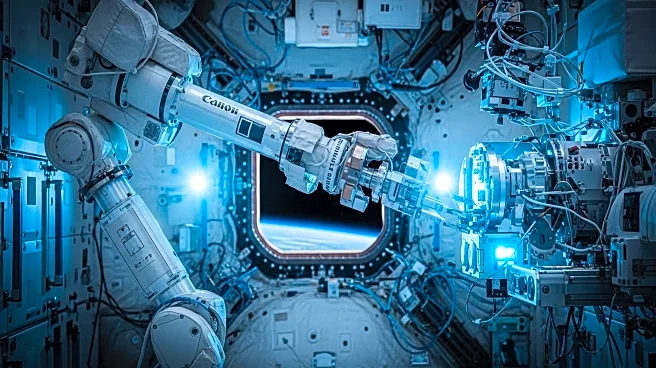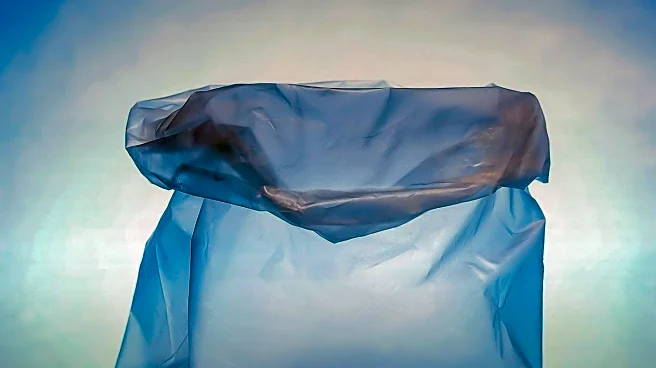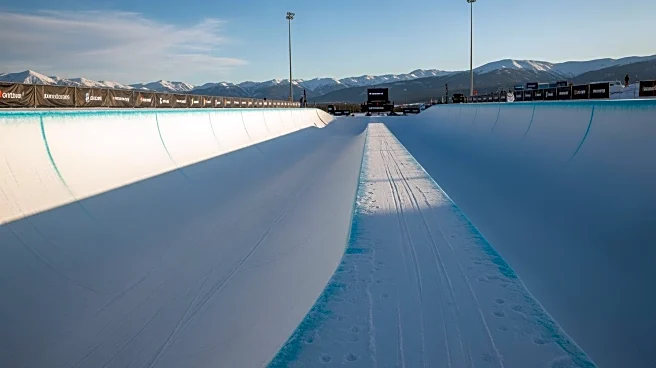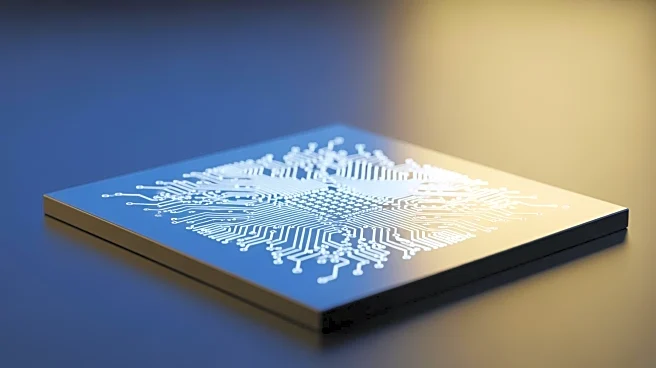What's Happening?
NASA astronauts Zena Cardman and Mike Fincke, part of the Expedition 73 crew aboard the International Space Station (ISS), focused on maintaining and installing advanced science hardware. The crew's activities included life support and electronics maintenance to ensure the orbital outpost remains operational. Flight Engineer Jonny Kim installed a technology demonstration in the Harmony module to test moisture removal from the spacecraft's environment, which could enhance regenerative life support systems for future missions. Kimiya Yui of JAXA worked on the Electrostatic Levitation Furnace in the Kibo laboratory module, using lasers to heat materials to ultra-high temperatures for research. Mike Fincke installed the Heat Transfer Host 2 fluid physics research hardware in the Columbus laboratory module, aiming to study two-phase heat transfer, which could lead to advanced thermal systems for deep space missions. Zena Cardman conducted life support maintenance, airflow measurements, and inspected ventilation systems, while Sergey Ryzhikov and Alexey Zubritsky focused on power supply and oxygen generator maintenance.
Why It's Important?
The maintenance and installation of advanced science hardware on the ISS are crucial for the continued operation and success of space missions. The technology demonstrations and experiments conducted by the crew have the potential to significantly impact future space exploration. For instance, advancements in moisture removal and regenerative life support systems are vital for long-duration missions to the Moon, Mars, and beyond, where resupply is not feasible. The research on two-phase heat transfer could lead to the development of more efficient thermal systems, enhancing the safety and comfort of astronauts on deep space missions. These efforts contribute to the broader goals of space exploration, including the development of sustainable technologies and the expansion of human presence beyond Earth.
What's Next?
The ongoing research and maintenance activities on the ISS will continue to support future space missions. The results from the current experiments and technology demonstrations will be analyzed to inform the design and implementation of systems for upcoming missions. As NASA and its international partners plan for more ambitious missions, such as returning humans to the Moon and eventually sending them to Mars, the knowledge gained from these activities will be instrumental in overcoming the challenges of long-duration space travel. Continued collaboration among international space agencies will be essential to advance these goals and ensure the success of future missions.
Beyond the Headlines
The work being done on the ISS not only advances scientific knowledge but also fosters international cooperation in space exploration. The collaboration between NASA, JAXA, and Roscosmos exemplifies the global effort to push the boundaries of human exploration. Additionally, the research conducted on the ISS has implications beyond space travel, potentially leading to innovations in fields such as pharmaceuticals and materials science. The ability to manufacture pharmaceuticals off Earth, for example, could revolutionize drug production and delivery, offering new solutions for healthcare challenges on Earth.









